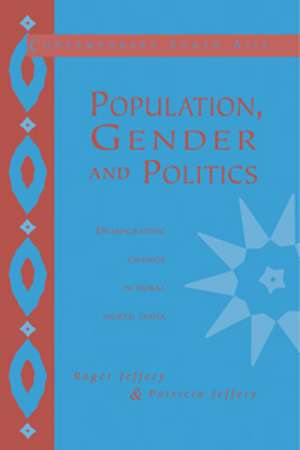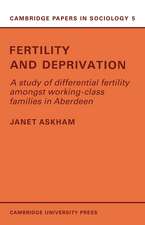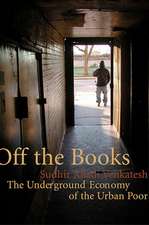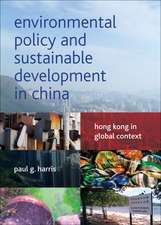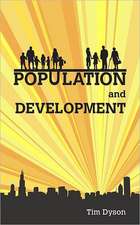Population, Gender and Politics: Demographic Change in Rural North India: Contemporary South Asia, cartea 3
Autor Roger Jeffery, Patricia Jefferyen Limba Engleză Paperback – 12 iul 1997
Din seria Contemporary South Asia
-
 Preț: 289.39 lei
Preț: 289.39 lei -
 Preț: 387.25 lei
Preț: 387.25 lei -
 Preț: 343.35 lei
Preț: 343.35 lei -
 Preț: 345.75 lei
Preț: 345.75 lei -
 Preț: 234.36 lei
Preț: 234.36 lei -
 Preț: 201.59 lei
Preț: 201.59 lei -
 Preț: 308.39 lei
Preț: 308.39 lei -
 Preț: 268.89 lei
Preț: 268.89 lei - 35%
 Preț: 445.96 lei
Preț: 445.96 lei
Preț: 349.80 lei
Nou
Puncte Express: 525
Preț estimativ în valută:
66.94€ • 69.63$ • 55.26£
66.94€ • 69.63$ • 55.26£
Carte tipărită la comandă
Livrare economică 15-29 aprilie
Preluare comenzi: 021 569.72.76
Specificații
ISBN-13: 9780521466530
ISBN-10: 0521466539
Pagini: 296
Ilustrații: 40 tables
Dimensiuni: 151 x 229 x 20 mm
Greutate: 0.44 kg
Editura: Cambridge University Press
Colecția Cambridge University Press
Seria Contemporary South Asia
Locul publicării:Cambridge, United Kingdom
ISBN-10: 0521466539
Pagini: 296
Ilustrații: 40 tables
Dimensiuni: 151 x 229 x 20 mm
Greutate: 0.44 kg
Editura: Cambridge University Press
Colecția Cambridge University Press
Seria Contemporary South Asia
Locul publicării:Cambridge, United Kingdom
Cuprins
1. An island of peace?; 2. Populating Bijnor; 3. 'In these expensive times'; 4. Women's agency and fertility; 5. Modern mindsets or empowered women?; 6. Fighting with numbers; 7. Conclusion.
Recenzii
' … presents an enormous amount of information on the (Îndian) context of (Indian) demographic behaviour. The present study deals with a politically sensitive topic, the reasons behind higher fertility among Muslims in the research area … The authors take a very strong stand in stating that Islam per se, as a cultural factor, is not a causal factor for higher fertility among Indian Muslims. Higher fertility is not due to religion but tp factors such as the economic and political situation in which Muslims live … the book is a 'must' for researchers and students in population studies, especially those who are interested in South Asia and in micro-approaches to demographic research.' Inge Hutter, European Journal of Population
Descriere
This is a study of the demographic processes of two castes in rural north India, that asks why fertility levels are higher among the Muslim Sheikhs than the Hindu Jats.
